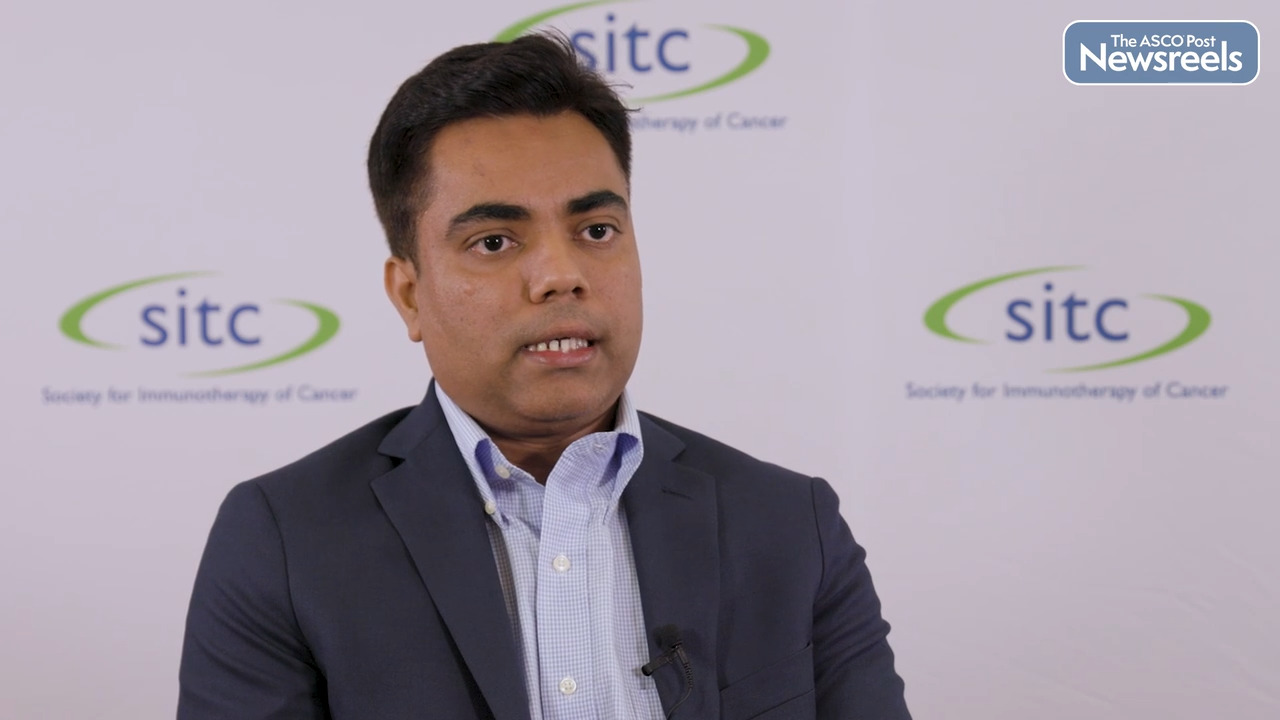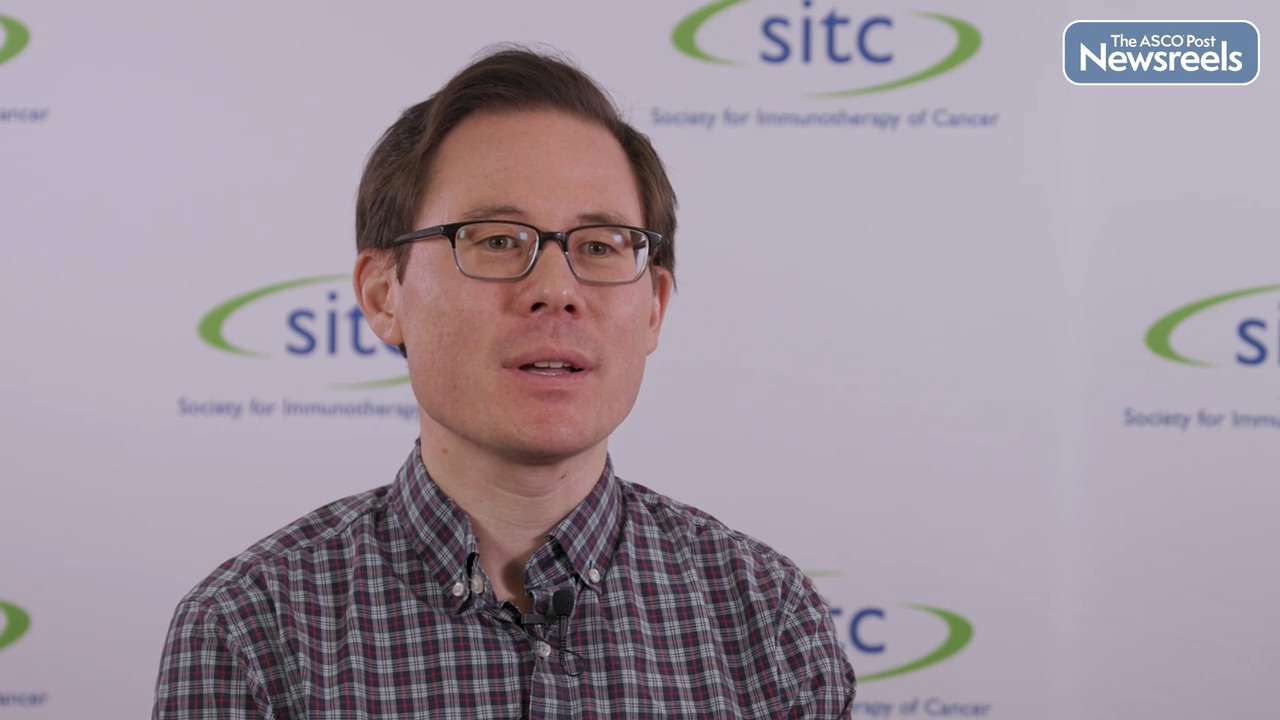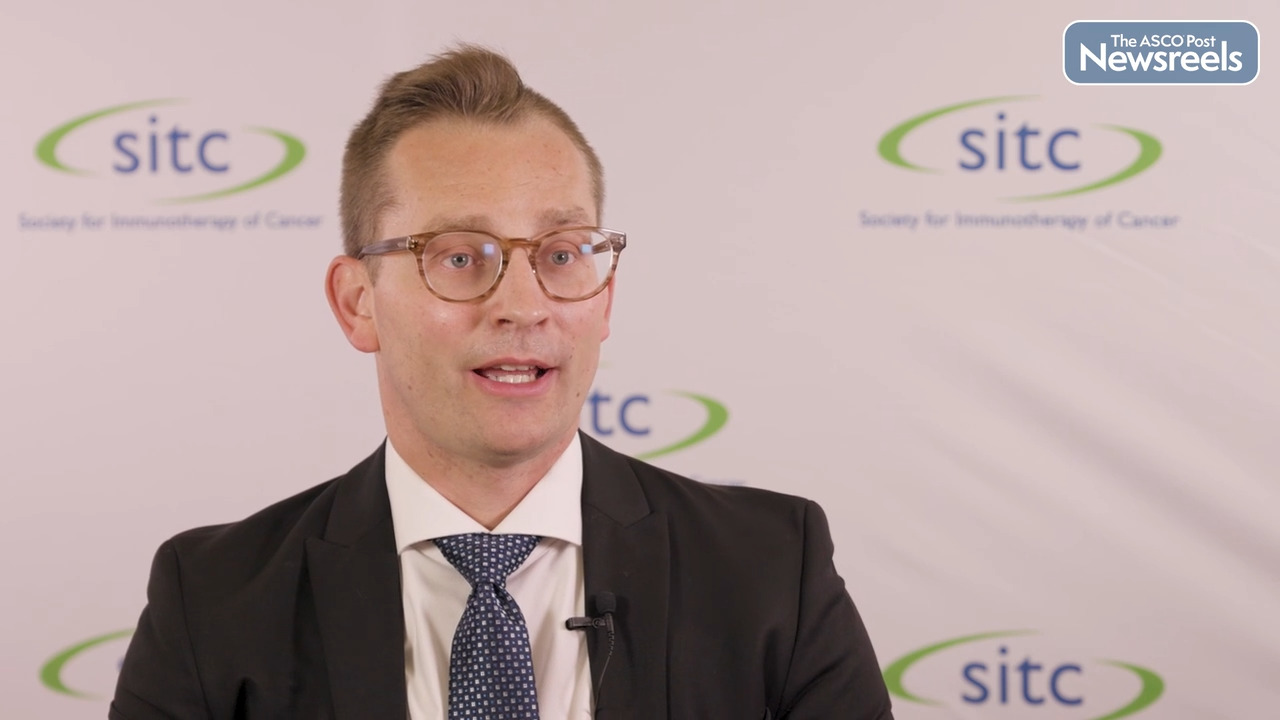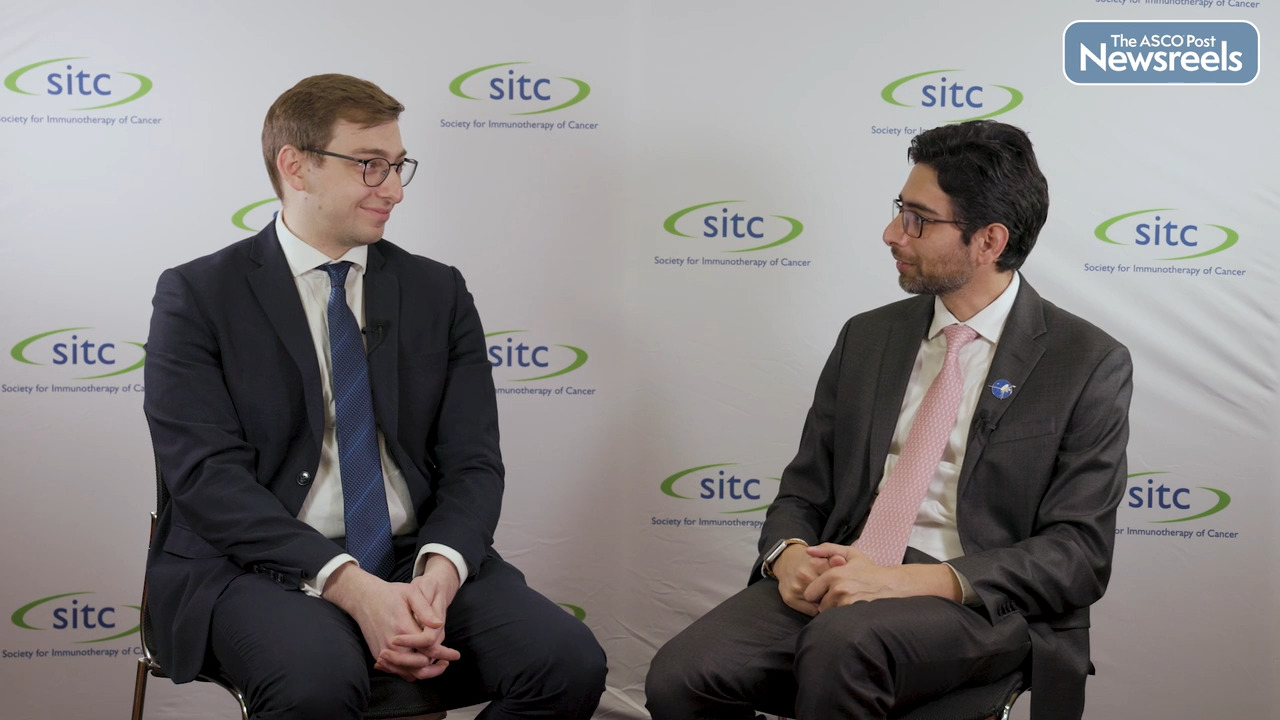Sublobar vs Lobar Resection for Peripheral Stage IA NSCLC
As reported in The New England Journal of Medicine by Nasser Altorki, MD, and colleagues, the phase III CALGB/Alliance 140503 trial showed that in respect to disease-free survival, sublobar resection was noninferior to lobar resection for patients with peripheral stage IA non–small cell lung cancer ...
Addition of Pembrolizumab to Chemotherapy in First-Line Treatment of Metastatic Squamous NSCLC: 5-Year Update of KEYNOTE-407
As reported in the Journal of Clinical Oncology by Silvia Novello, MD, PhD, and colleagues, the 5-year update of the phase III KEYNOTE-407 trial showed continued overall survival and progression-free survival benefit with the addition of pembrolizumab to chemotherapy in the first-line treatment of...
Lung Cancer Screening May Be More Cost-Effective When Using Risk Model–Based Strategies
Risk model–based lung cancer screening strategies may be more cost-effective than current recommendations that are based solely on the patient’s age and smoking history, according to a new study published by Toumazis et al in the Annals of Internal Medicine. The findings also suggested that...
SBRT for Patients With Primary Lung Neuroendocrine Tumors
Researchers have found that stereotactic body radiotherapy (SBRT) may be an effective treatment for patients with early-stage lung neuroendocrine tumors, according to a new study published by Oliver et al in the International Journal of Radiation Oncology • Biology • Physics. Background Primary...
Surgical Quality Metric Scoring and Survival Among U.S. Veterans With Early-Stage NSCLC
In a study reported in JAMA Surgery, Heiden et al developed a surgical quality metric scoring system—the Veterans Affairs Lung Cancer Operative quality (VALCAN-O) score—that was associated with overall survival in U.S. veterans undergoing curative-intent surgery for early-stage non–small cell lung...
Adjuvant Osimertinib Significantly Improves Disease-Free Survival for Patients With Resected EGFR-Mutant NSCLC
The EGFR tyrosine kinase inhibitor osimertinib may improve rates of disease-free survival and reduce the risk of recurrence in patients with resected, EGFR-mutant non–small cell lung cancer (NSCLC), according to a new exploratory analysis of the ADAURA trial published by Roy S. Herbst, MD, PhD,...
Uptake of Immune Checkpoint Inhibitors and Survival Among Younger and Older Patients With Advanced NSCLC
In a U.S. cohort study reported in JAMA Oncology, Voruganti et al found that the uptake of immune checkpoint inhibitor therapy for patients with advanced non–small cell lung cancer (NSCLC) has been associated with “modest” improvements in overall survival, particularly among older patients. As...
FDA Approves Pembrolizumab as Adjuvant Treatment for NSCLC
On January 26, the U.S. Food and Drug Administration (FDA) approved pembrolizumab (Keytruda) for adjuvant treatment following resection and platinum-based chemotherapy in patients with stage IB (T2a, ≥ 4 cm), II, or IIIA non–small cell lung cancer (NSCLC). KEYNOTE-091 Efficacy was evaluated in...
Anti-TIGIT Antibody May Boost the Benefit of Immunotherapy in Stage IV Lung Cancer
In a phase II study of stage IV non–small cell lung cancer (NSCLC), domvanalimab, a novel antibody that blocks T-cell immunoglobulin and ITIM domain (TIGIT), when added to anti–PD-1 zimberelimab immunotherapy resulted in improved response rates and progression-free survival compared with...
Study Finds Immune Checkpoint Inhibitors Safe and Effective for Patients Living With HIV Who Have NSCLC
Immune checkpoint inhibitors are safe and effective for people living with HIV who have metastatic non–small cell lung cancer (NSCLC), according to data presented at the 2022 Society for Immunotherapy of Cancer (SITC) Annual Meeting.1 Findings from the first matched cohort to compare clinical...
New Study Shows Impact of Low Adherence to Guideline-Based Imaging Before Radiotherapy on Outcomes in Medicare Patients With NSCLC
Investigators revealed that approximately one out of every two patients on Medicare who have non–small cell lung cancer (NSCLC) may not receive the appropriate imaging prior to receiving radiation therapy, according to a new study published by Sterbis et al in The Journal of Nuclear Medicine....
Frequency and Dosage of Radiotherapy in Chemoradiotherapy for Limited-Stage SCLC
As reported in the Journal of Clinical Oncology by Jeffrey Bogart, MD, and colleagues, the phase III CALGB 30610/RTOG 0538 trial has shown no significant difference in overall survival with 70-Gy once-daily vs 45-Gy twice-daily radiotherapy in a chemoradiotherapy regimen for limited-stage small...
Novel AI Tool May Predict Risk of Lung Cancer Using Low-Dose CT Scan Data
Researchers have developed and tested an artificial intelligence (AI) tool known as Sybil, which may accurately predict the risk of lung cancer for individuals with or without a significant smoking history using data from low-dose chest computed tomography (CT) scans, according to a new study...
First-Line Atezolizumab Plus Bevacizumab in Metastatic Nonsquamous NSCLC With High Tumor Mutation Burden
In a Spanish phase II trial reported in JAMA Oncology, Mariano Provencio, MD, PhD, and colleagues found that the combination of atezolizumab and bevacizumab was active in the first-line treatment of patients with metastatic nonsquamous non–small cell lung cancer (NSCLC) with high tumor mutation...
New AI-Based Biomarker May Help Predict Immunotherapy Response for Patients With NSCLC
Researchers have discovered a new artificial intelligence (AI)-derived biomarker that uses routine imaging scans to help predict which patients with non–small cell lung cancer (NSCLC) will respond to immunotherapy, according to a novel study published by Alilou et al in Science Advances. The...
FoundationOne Liquid CDx Receives FDA Approval as a Companion Diagnostic for Entrectinib
On January 4, the U.S. Food and Drug Administration (FDA) approved FoundationOne Liquid CDx to be used as a companion diagnostic to identify patients with ROS1-positive non–small cell lung cancer (NSCLC) or NTRK fusion–positive solid tumors who do not have a tissue sample available and may be...
Risk of Incident Lung Cancer in Individuals With Clonal Hematopoiesis
In a study reported in the Journal of Clinical Oncology, Tian et al found that clonal hematopoiesis was associated with an increased risk of subsequent lung cancer, independent of known risk factors. Study Details Two nested case-control studies were performed. One included 832 incident lung cancer ...
Expert Point of View: Joelle Fathi, DNP, RN, ARNP, CTTS, FAAN
An expert on the panel discussion of lung cancer screening from the Quantitative Imaging Workshop XIX, Joelle Fathi, DNP, RN, ARNP, CTTS, FAAN, Chief Healthcare Delivery Officer for the GO2 Foundation for Lung Cancer, called the lung cancer screening study a powerful reminder of the reality on the...
Lung Cancer Screening Perceptions of Patients and Clinicians: The Power of Shared Decision-Making
Despite the benefits of lung cancer screening, including the high cure rate when found by screening compared to being discovered based on symptoms, the uptake of this technique among those who are eligible and where the screening is fully covered by insurance remains dismally low, on the order of...
In Stage IV NSCLC, Anti-TIGIT Antibody Boosts Immunotherapy Benefit
In the phase II ARC-7 study, when domvanalimab, a novel antibody that blocks T-cell immunoglobulin and ITIM domain (TIGIT), was added to immunotherapy for patients with stage IV non–small cell lung cancer (NSCLC), the combination resulted in improved response rates and progression-free survival...
FDA Approves FoundationOne Liquid CDx as a Companion Diagnostic for a Certain Group of Tyrosine Kinase Inhibitors
On December 21, Foundation Medicine, Inc, announced that the U.S. Food and Drug Administration (FDA) approved its FoundationOne Liquid CDx as a companion diagnostic to identify patients with non–small cell lung cancer (NSCLC) whose tumors have EGFR exon 19 deletions or exon 21 L858R substitutions...
FDA Approves Pafolacianine to Aid Lung Cancer Surgery
The U.S. Food and Drug Administration (FDA) has approved the targeted imaging agent pafolacianine (Cytalux) for use in lung cancer surgery. This injectable diagnostic binds to cancerous tissue and glows when stimulated by near-infrared light, making it easier for surgeons to remove tumors...
A Serendipitous Ride Along a Highway May Have Saved My Life
In 2017, I noticed a roadside billboard touting the benefits of low-dose computed tomography (CT) imaging for lung cancer screening. The message probably saved my life. The public service campaign, called Saved by the Scan from the American Lung Association, included an Internet address where I...
Tremelimumab Combined With Durvalumab and Platinum-Based Chemotherapy in Metastatic NSCLC
On November 10, 2022, tremelimu-mab in combination with durvalumab and platinum-based chemotherapy was approved for patients with metastatic non–small cell lung cancer (NSCLC) with no sensitizing EGFR mutation or ALK genomic tumor aberrations.1 Supporting Efficacy Data Approval was supported by...
FDA Grants Accelerated Approval to Adagrasib for KRAS G12C–Mutated NSCLC
On December 12, the U.S. Food and Drug Administration (FDA) granted accelerated approval to adagrasib (Krazati), a RAS GTPase family inhibitor, for adult patients with KRAS G12C–mutated, locally advanced or metastatic non–small cell lung cancer (NSCLC), as determined by an FDA-approved test, who...
Addition of Neoadjuvant Nivolumab to Chemotherapy Improves Complete Pathologic Response Rate and Event-Free Survival in Resectable NSCLC
As reported in The New England Journal of Medicine by Patrick M. Forde, MB, BCh, of Johns Hopkins Kimmel Cancer Center, and colleagues, the phase III CheckMate 816 trial has shown improved pathologic complete response rate and event-free survival with the addition of nivolumab to platinum-based...
Selpercatinib Approved for Advanced RET Fusion–Positive Solid Tumors and Advanced RET Fusion–Positive NSCLC
On September 21, 2022, selpercatinib was granted accelerated approval for adults with locally advanced or metastatic solid tumors with RET gene fusion whose disease has progressed on or following prior systemic treatment or who have no satisfactory alternative treatment options.1 On the same day,...
Machine Learning–Based Scoring of TILs and Outcomes With Immunotherapy in Patients With NSCLC
In a retrospective study reported in JAMA Oncology, Rakaee et al found that tumor-infiltrating lymphocyte (TIL) levels ascertained via machine learning–based scoring on standard histologic images were associated with response in patients receiving immune checkpoint inhibitor therapy for non–small...
Lung Cancer Screening May Increase Long-Term Survival Rate
Diagnosing early-stage lung cancer using low-dose computed tomography (CT) screenings may improve patients’ long-term survival rate, according to long-term findings from the International Early Lung Cancer Action Program presented at the Radiological Society of North America (RSNA) 2022 Annual...
Kishu Ranjan, PhD, on Non–Small Cell Lung Cancer: New Findings on a Biomarker and Immunotherapy Resistance
Kishu Ranjan, PhD, of Yale University School of Medicine, discusses his study findings, which identified a deficiency in the biomarker TAP2 as a prominent immune evasion mechanism in patients whose non–small cell lung cancer has resisted immunotherapy (Abstract 148).
Jonathan Chen, MD, PhD, on NSCLC: Predicting Response to Immunotherapy
Jonathan Chen, MD, PhD, of Massachusetts General Hospital, discusses “immunity hubs” that interact with a reservoir of stem-like CD8 T cells and appear to be associated with subsequent response to anti–PD-1 blockade in patients with non–small cell lung cancer. Hybrid hubs, Dr. Chen says, are a favorable class of immunity hub notable for CD8-positive and TCF7-positive cells, as well as CCL19 expression (Abstract 956).
Longer-Term Follow-up From ADAURA Supports Adjuvant Osimertinib as Standard of Care for EGFR-Mutated Stage IB to IIIA NSCLC
With longer-term follow-up, adjuvant treatment with osimertinib led to a 77% reduction in the risk of disease recurrence or death following complete resection vs placebo-treated patients with EGFR-mutated, stage II to IIIA non–small cell lung cancer (NSCLC). Disease-free survival was improved...
POSEIDON Trial: First-Line Durvalumab With or Without Tremelimumab Plus Chemotherapy in Metastatic NSCLC
As reported in the Journal of Clinical Oncology by Melissa L. Johnson, MD, and colleagues, the pivotal phase III POSEIDON trial has shown significantly improved progression-free and overall survival with the addition of tremelimumab and durvalumab to platinum-based chemotherapy in the first-line...
Cemiplimab-rwlc in Combination With Platinum-Based Chemotherapy in Advanced NSCLC With No EGFR, ALK, or ROS1 Aberrations
On November 8, 2022, cemiplimab-rwlc was approved for use in combination with platinum-based chemotherapy for first-line treatment of patients with advanced non–small cell lung cancer (NSCLC) with no EGFR, ALK, or ROS1aberrations.1 Supporting Efficacy Data Approval was supported by findings in the...
Wade T. Iams, MD, on NSCLC: Combining an Antigen-Presenting Cell Activator With Pembrolizumab
Wade T. Iams, MD, of Vanderbilt University Medical Center, discusses phase II efficacy results from the first-line non–small cell lung cancer cohort of the TACTI-002 study. The results suggest that when combined with pembrolizumab, eftilagimod alpha yielded encouraging efficacy across all PD-L1 levels, including patients with PD-L1 low and PD-L1 negative disease (Abstract 1470).
Selpercatinib Approved for Advanced RET Fusion–Positive Solid Tumors and Advanced RET Fusion–Positive NSCLC
On September 21, 2022, selpercatinib was granted accelerated approval for adults with locally advanced or metastatic solid tumors with RET gene fusion whose disease has progressed on or following prior systemic treatment or who have no satisfactory alternative treatment options.1 On the same day,...
2022 State of Lung Cancer Report: Critically Low Lung Cancer Screening Rates Reveal Opportunity to Save More Lives
The 2022 State of Lung Cancer report by the American Lung Association revealed that only 5.8% of eligible Americans had been screened for lung cancer in 2021, and some states had screening rates as low as 1%. The 5th annual report highlighted how the toll of lung cancer varied by state and examined ...
Talal El Zarif, MD, and Abdul Rafeh Naqash, MD: For Patients Living With HIV and Cancer, New Data on Immune Checkpoint Inhibitors
Talal El Zarif, MD, of Dana-Farber Cancer Institute, and Abdul Rafeh Naqash, MD, of Stephenson Cancer Center at The University of Oklahoma, discuss the results of their cohort study of patients living with HIV and metastatic non–small cell lung cancer, who are often underrepresented in clinical trials, and the safety and efficacy of treating this unique population with immune checkpoint inhibitors (ICIs). The data showed that patients living with HIV and lung cancer had similar toxicity profiles and clinical outcomes as did those who did not have HIV and received ICIs (Abstract 437).
First-Line Pembrolizumab vs Chemotherapy in Advanced PD-L1–Positive NSCLC Without EGFR/ALK Alterations
As reported in the Journal of Clinical Oncology by Gilberto de Castro, Jr, MD, PhD, and colleagues, 5-year follow-up of the KEYNOTE-042 trial showed a maintained overall survival benefit with first-line pembrolizumab vs chemotherapy in patients with non–small cell lung cancer (NSCLC) with a PD-L1...
Immune Checkpoint Inhibitors for Patients Living With HIV: Safe and Effective in Metastatic NSCLC
Immune checkpoint inhibitors are safe and effective for people living with HIV who have metastatic non–small cell lung cancer (NSCLC), according to data presented by El Zarif et al at the Society for Immunotherapy of Cancer (SITC) 2022 Annual Meeting (Abstract 437). Findings from the first matched...
FDA Approves Tremelimumab in Combination With Durvalumab and Platinum-Based Chemotherapy for Metastatic NSCLC
On November 10, the U.S. Food and Drug Administration (FDA) approved tremelimumab (Imjudo) in combination with durvalumab (Imfinzi) and platinum-based chemotherapy for adult patients with metastatic non–small cell lung cancer (NSCLC) with no EGFR mutations or ALK genomic tumor aberrations. ...
POSEIDON Follow-up Suggests Chemoimmunotherapy Triplet Extends Survival in Difficult-to-Treat NSCLC Mutational Subtypes
After 4 years, a limited course of five cycles of tremelimumab added to durvalumab plus chemotherapy extended overall survival in patients with metastatic non–small cell lung cancer (NSCLC) compared with chemotherapy alone, according to an updated exploratory analysis of the phase III POSEIDON...
Expert Point of View: Anand Devaraj, MD, PhD
Abstract discussant Anand Devaraj, MD, PhD, Professor in Thoracic Radiology at Royal Brompton and Harefield Hospitals, and Professor of Thoracic Radiology at the National Heart and Lung Institute, Imperial College London, highlighted the increased risk of second primary tumors among current...
I’ve Had Two Primary Lung Cancers, and They Haven’t Defeated Me
I don’t know why I am so susceptible to developing lung cancer. Since 2014, I have been diagnosed with both non–small cell lung cancer (NSCLC) and small cell lung cancer, each occurring in my right lung. I have also been diagnosed with precancerous colon polyps, which necessitated invasive surgery. ...
Expert Point of View: Natasha Leighl, MD
“CodeBreaK 200 clearly establishes sotorasib as the new standard of care, replacing docetaxel as second- or third-line therapy for advanced KRAS G12C–mutated lung cancer,” stated invited discussant Natasha Leighl, MD, of the Princess Margaret Cancer Centre, Toronto. “Sotorasib improved...
Sotorasib: A New Standard of Care for Second- or Third-Line Treatment of KRAS G12C–Mutated NSCLC?
The KRAS G12C inhibitor sotorasib doubled the rate of progression-free survival at 12 months and reduced the risk of disease progression or death by 34% compared with standard second-line docetaxel for patients with previously treated non–small cell lung cancer (NSCLC) and KRAS G12C mutations....
FDA Approves Cemiplimab-rwlc in Combination With Platinum-Based Chemotherapy for NSCLC
On November 8, the U.S. Food and Drug Administration (FDA) approved the PD-1 inhibitor cemiplimab-rwlc (Libtayo) in combination with platinum-based chemotherapy for adult patients with advanced non–small cell lung cancer (NSCLC) with no EGFR, ALK, or ROS1 aberrations. Study 16113 Efficacy was...
Repotrectinib for ROS1-Positive NSCLC Examined in Phase I/II TRIDENT-1 Trial
Early trials of the targeted oral drug repotrectinib discovered that it may help treat patients with a certain type of non–small cell lung cancer (NSCLC), according to a new study published by Cho et al in the European Journal of Cancer. The results of the TRIDENT-1 trial—presented at the 34th...
Preliminary Results From ARROS-1 Phase I Clinical Trial Suggest That NVL-520 May Be Well Tolerated and Active in NSCLC
Preliminary data from a phase I clinical trial of the ROS1 inhibitor NVL-520 to treat patients with non–small cell lung cancer (NSCLC) and other solid tumors suggested that it may have the potential to both halt tumor growth by inhibiting a cancer-causing gene change and reach cancer cells within...
Mosaic Chromosomal Alterations and Risk of Lung Cancer
In a study reported in The Lancet Oncology, Qin et al found that the presence of mosaic chromosomal alterations detected in blood-derived DNA was associated with an increased risk of lung cancer among persons of Chinese and European heritage. Study Details The study involved two cohorts:...




